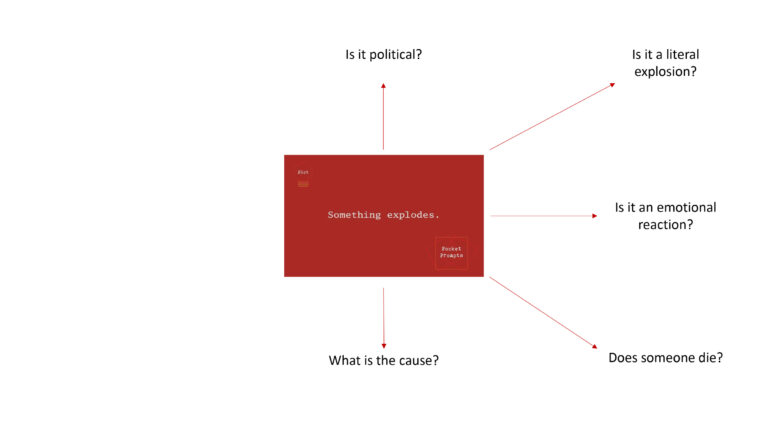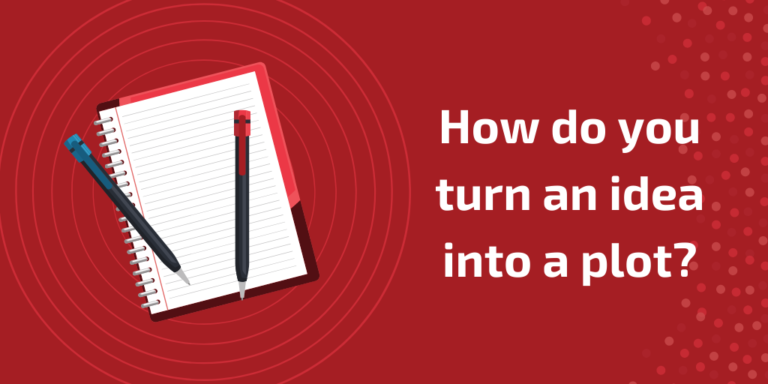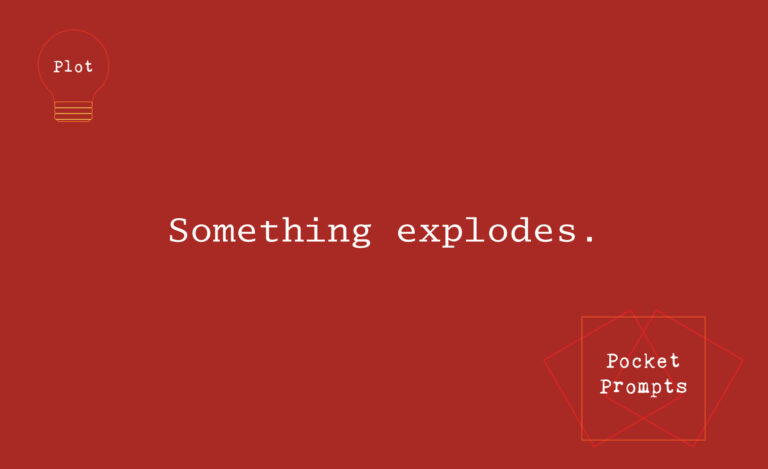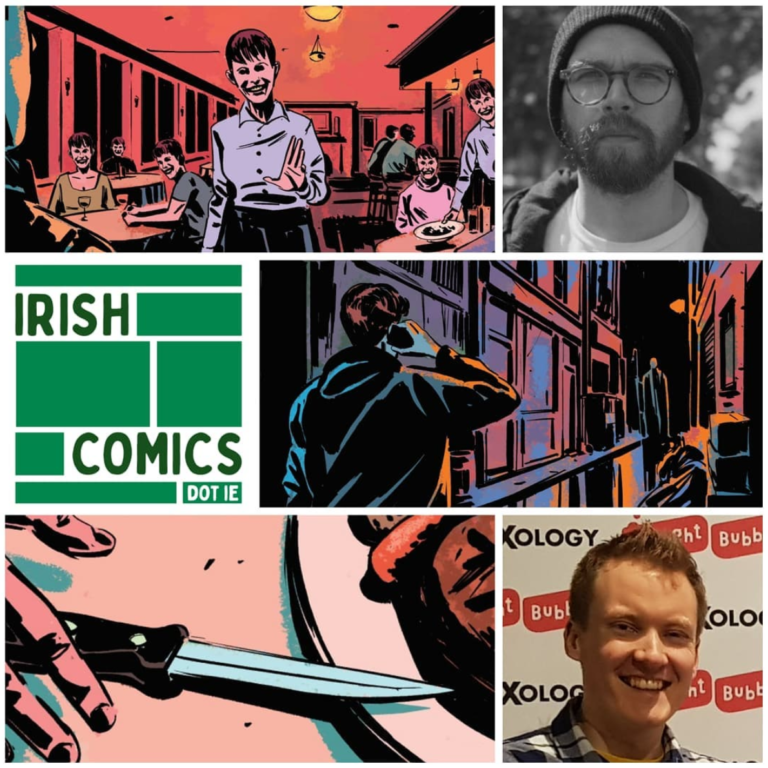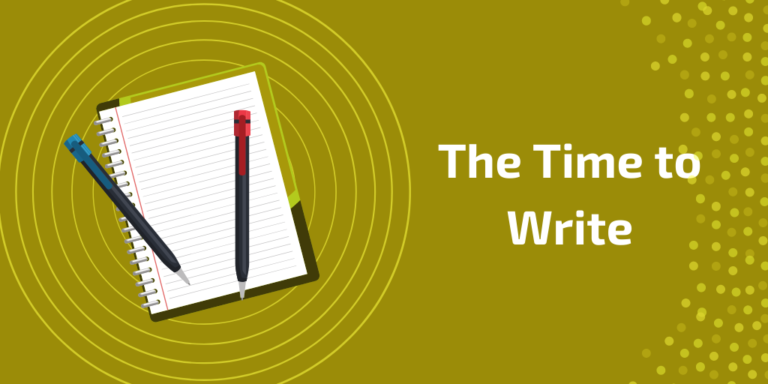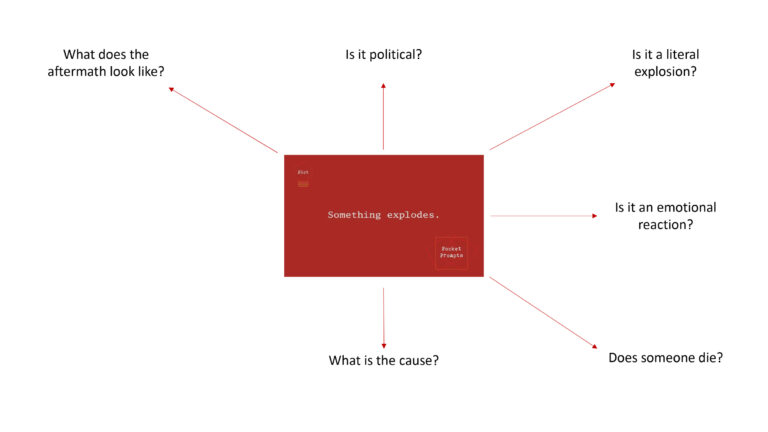Quick planning a novel
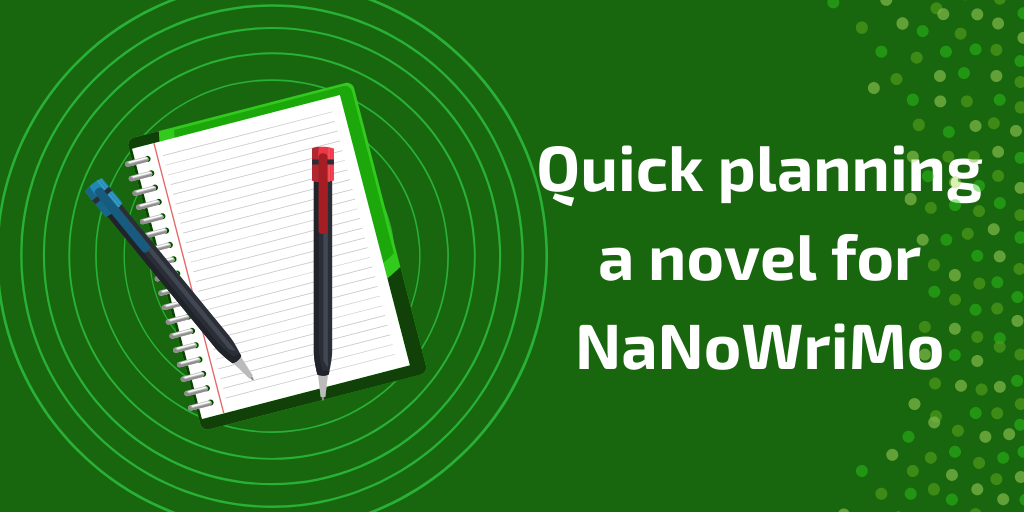
In this NaNoWriMo Prep series, we’ve so far looked at why to do NaNo (aside from it being great) and how to turn a prompt into a plot. In today’s post, we’ll focus on planning your book to give you a guideline for writing.
Getting started with your plan
Your plan needs two things: the idea for the plot, and the characters. If you haven’t already taken note of them, write them down now. It’s good to keep track of your plan in writing, rather than assuming you’ll remember everything in the moment. Let’s get started with writing this down.
Who is your protagonist?
Put down their name, their age, their job. Everything you noted from yesterday’s post – make a list of it. Some of it will be useful for the book, some of it won’t, but it helps that you know your character(s). You can make this sort of list for your primary and secondary characters. Keep in mind that if you’re stuck for time, you should focus on the characters who matter most first.
What does your protagonist want?
This is their why. This will inform the plot in one of the following ways:
- The story will focus on how they try to achieve their goal
- The story will be about how they avoid chasing their dreams – some people are great at making excuses for themselves
- The story will focus on the reasons why they can’t chase their goal
The last point is where we get our next point for your plan:
What is the conflict of the novel?
In my notes, I wrote “What gets in their way?”, because typically that’s what we’re talking about. What stops your protagonist from achieving their goal? What obstacles do they need to overcome?
When you know this, it’s a lot easier to figure out the plot of the novel. This is especially important when you need a plan.
Are there any genre tropes you should include?
Tropes exist for a reason – readers and viewers recognise them. Identifying the tropes of your genre is helpful. Littering your book with them isn’t necessarily a good thing, but it can help you figure out how your book is forming, and what genre it is. Your genre says a lot about the sort of story you’re telling, and can inform a lot about how it’s told.
Figure out genre tropes from reading in your genre and checking out TV Tropes. The former requires a lot more time, while the latter requires some restraint on your part – it’s easy to fall down the rabbit hole of TV Tropes.
Three basic things to note
Everyone knows the classroom guide to writing a story. You need to know three things:
- The beginning – how will you start?
- The end – how will you wrap up the book?
- The middle – what do you need to include to get from A-Z?
The middle is where we include things such as:
- Conflict between characters
- Sub plots
- Plot twists
- The discovery of your character’s primary goal, if you haven’t already included it in the beginning of the book
Note events in a random order at first if you need to, and then rearrange for a suitable flow. The story should be resolved by the end of the book – even if you’re writing a series. Every book in a series should still read as a full story by itself.
How do you plan?
There are a lot of different methods. I note everything that happens in a book, chapter by chapter. This is after I’ve thought it through, sometimes through mind maps. I like to add notes to myself in my plan about things I’ll forget as I’m writing, like the setting of a scene when I know I can get lost in physical conflict between characters. Other times, I’ll highlight a key detail that needs to be included.
My preference is to print my plan and keep it beside me while I work. This has the added benefit of allowing me to take notes on it as I go, especially if I introduce a character I hadn’t planned on before. While I prepare extensively, I still let myself have fun while I write by tending to the plot as it develops by itself.
Come back tomorrow
As the series progresses, we’ll take a look at some tools for managing your time, and tackle the subject of short stories – Camp NaNoWriMo is about freedom, and if you think a novel might be too much work, short fiction might be your best bet!
